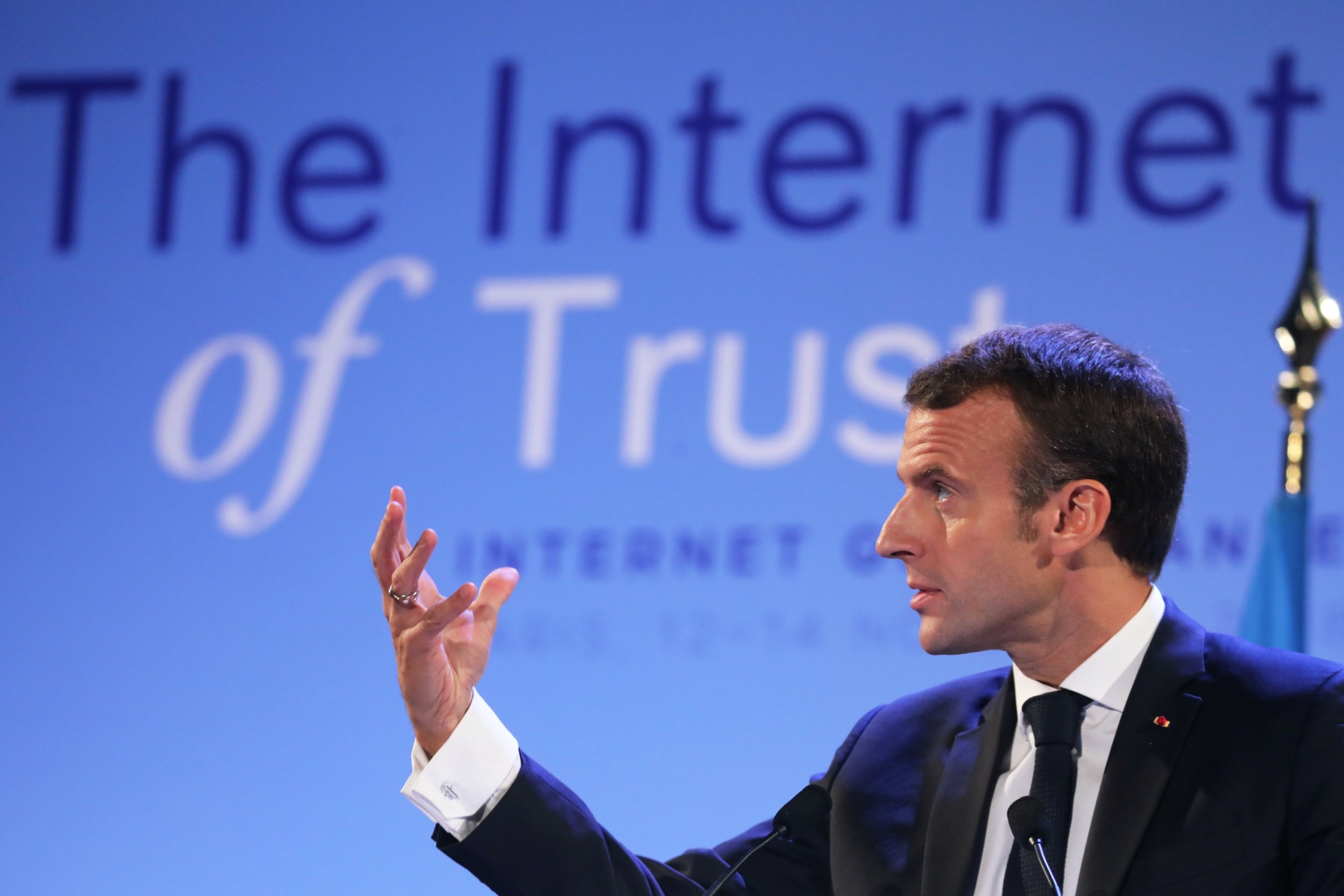Cyber Week in Review: November 16, 2018
This week: France wants to be a norm entrepreneur in cyberspace, Facebook works with French regulators, U.S. law enforcement want Alexa data, and cybercrime at the United Nations.

By experts and staff
- Published
Experts
![]() By Adam SegalIra A. Lipman Chair in Emerging Technologies and National Security and Director of the Digital and Cyberspace Policy Program
By Adam SegalIra A. Lipman Chair in Emerging Technologies and National Security and Director of the Digital and Cyberspace Policy Program
Editor’s note: There will be no Week in Review next week in observance of the U.S. Thanksgiving holiday. It will return on November 30.
Here is a quick round-up of this week’s technology headlines and related stories you may have missed:
1. Liberté, égalité, cybersécurité. The French government unveiled the Paris Call for Trust and Security in Cyberspace, a non-binding declaration committing signatories to abide by a series of norms to guide their activity in cyberspace. Fifty-one countries and 130 groups supported the document, which calls for signatories to, among other things, abide by international law online, combat election interference, protect individuals and critical infrastructure from cyberattacks, and prevent the proliferation of malicious cyber tools. For their part, private sector entities are explicitly told to not “hack back” in response to cyber operations directed at them. While the Paris Call got the backing of all EU member states, many global tech firms (e.g. Google, Microsoft, Facebook), and a number of non-profits, the United States, China, Russia and Australia, chose not to sign. The U.S. absence raised some eyebrows as much of the call reflected existing U.S. policy. According to Axios, U.S. opposition could be the result of the Trump administration’s distaste for multilateralism and its preference for not limiting its freedom of action in cyberspace.
2. Peeling back the curtain. Facebook announced it was taking two steps to improve the transparency of its content moderation policies and operations. First, as part of a six-month experiment beginning in 2019, French officials will be given unprecedented access to Facebook to study how the company regulates hate speech on its platform. The French government then hopes to develop new legislation to fight hate speech online based on what the investigators observe, as well as extend the program to other tech platforms. Second, Mark Zuckerberg announced his plans to establish an independent body that would review appeals from users about content moderation decisions. Critical details about the appeals body, such as member selection and the petitioning process, have not yet been determined. In recent months, regulators and the press have hammered Facebook over its content moderation policies, and the company likely hopes that these two efforts will improve the transparency of its operations and give it a say in shaping regulation.
3. Alexa, did you overhear a murder? A New Hampshire judge has ordered Amazon to turn audio recordings and information about what smart devices were paired with an Amazon Echo as part of a double murder trial. Prosecutors believe that the Echo, which was taken by police into evidence during their initial investigation, recorded audio of the murders, evidence which could lead to a conviction. As internet-connected devices and smart assistants become more commonplace, the volume and type of data they store about their users, from movement to conversation, have become more valuable in solving crimes to law enforcement. For example, heart rate data from a victim’s Fitbit was recently used to charge their stepfather with murder.
4. Another UN resolution on cyber issues. The third committee of the UN General Assembly adopted a resolution that requests member states provide their views to the Secretary General on the issue of cybercrime and the related challenges they face. The resolution, sponsored by Russia, was adopted via a vote, with eighty-eight voting in favor, fifty-five against, and twenty-nine abstentions. It drew opposition from Australia, Canada, the European Union, the United States, and others largely on the grounds that other UN entities were already seized of the issue and discussing it at length. Russia has long argued that a new UN treaty is necessary to combat cybercrime. The United States argued that the new resolution was a Russian attempt to politicize law enforcement cooperation and build support for its treaty efforts.
